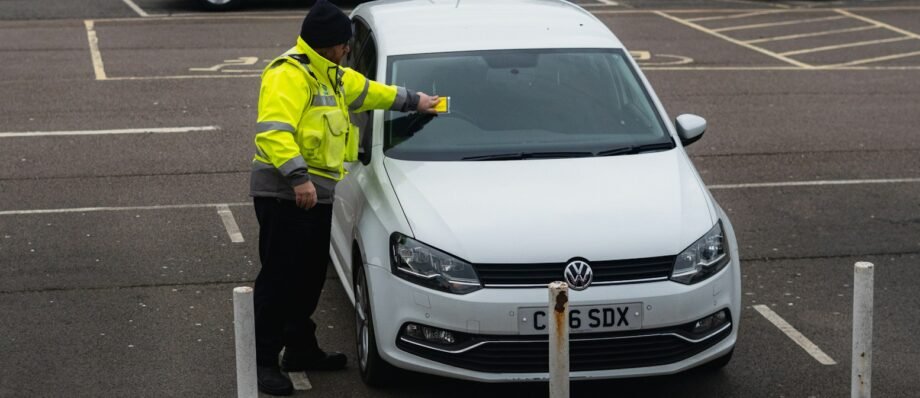Can Dash Cam Footage Help You Fight a Traffic Ticket?
Picture this: You’re driving down a familiar road, obeying the speed limit, when flashing lights appear in your rearview mirror. The officer claims you were speeding, but you know you weren’t. Frustrated, you remember—you have a dash cam. But can this footage actually help you fight the ticket?
In many cases, the answer is yes! Dash cam footage can serve as powerful evidence in traffic court, helping drivers dispute unfair citations. But there are some key factors to consider before relying on your footage to challenge a ticket. Let’s break it all down.
How Dash Cam Footage Can Support Your Case
1. Proving You Weren’t Speeding
If you receive a speeding ticket but believe it was issued in error, a dash cam with GPS and speed-tracking capabilities can be your best defense. Many high-quality dash cams log:
- Your speed at any given moment
- Time-stamped video evidence
- Location data
This information can be compared against the officer’s radar reading to show discrepancies. For example, if your dash cam proves you were traveling at 45 mph in a 50 mph zone, you may have solid grounds for disputing the ticket.
2. Challenging a Red Light or Stop Sign Violation
Red light and stop sign tickets are often based on an officer’s visual judgment, which isn’t always accurate. A dash cam can provide clear proof of whether you stopped fully or if the light was still yellow when you entered the intersection.
- If the footage shows you stopped completely before making a turn, you can contest a rolling stop violation.
- If the video proves you crossed the stop line while the light was yellow, you may be able to get the ticket dismissed.
3. Disputing a Wrongful Lane Violation or Unsafe Passing Citation
Traffic officers sometimes issue citations for improper lane changes or unsafe passing based on their perspective. If your dash cam shows that you changed lanes safely, used your turn signal, or had enough clearance to pass, it could serve as valuable evidence.
- A wide-angle lens can capture lane positions accurately.
- Rear-facing dash cams can show whether another driver was actually at fault.
4. Proving You Were Not at Fault in an Accident
Some traffic tickets are issued after a crash, even when the driver wasn’t at fault. A dash cam can:
- Show that another driver ran a red light or stop sign.
- Prove that you were rear-ended and not responsible for the collision.
- Provide timestamped evidence to clarify the sequence of events.
Will the Court Accept Dash Cam Footage?
Yes, many courts accept dash cam footage as evidence, but it must meet certain criteria:
- Clear and unedited – The video must be original, without any modifications.
- Date and time stamped – Footage should have automatic timestamps to verify accuracy.
- Legally obtained – The dash cam must comply with state recording laws.
Some courts may require you to submit footage in a specific format, so always check local court guidelines before presenting your video.
Steps to Use Dash Cam Footage in Traffic Court
If you decide to challenge a ticket using your dash cam footage, follow these steps:
- Save and back up the footage – Transfer the file to a secure location to prevent accidental deletion or overwriting.
- Review the video – Ensure the footage clearly supports your claim and is of high quality.
- Prepare your case – Gather any additional evidence, such as witness statements or GPS data, to strengthen your argument.
- Submit the footage properly – Some courts allow electronic submissions, while others require you to bring a physical copy.
- Present your case confidently – Be prepared to explain how the footage disproves the ticket in a clear and concise manner.
When Dash Cam Footage May Not Help
While dash cams can be a strong defense, there are instances where they may not be useful:
- If the footage is unclear – Blurry or obstructed video won’t hold up in court.
- If the violation isn’t visible – Some infractions, like texting while driving, may not be captured on camera.
- If the dash cam lacks GPS data – Speeding violations are harder to contest without speed-tracking features.
FAQs About Using Dash Cams to Dispute Tickets
1. Can dash cam footage be used against me?
Yes. If your footage shows that you were actually in violation, the court may use it as evidence against you.
California Courts – Traffic Ticket Basics
2. Do all courts accept dash cam footage?
Most courts do, but policies vary by state. Always check your local traffic court’s guidelines before relying on video evidence.
3. How do I submit dash cam footage to the court?
Some courts accept USB drives or online uploads, while others may require DVDs. Check with the court clerk for submission requirements.
4. Can I use dash cam footage to challenge a parking ticket?
Possibly! If your footage shows that you were parked legally when you received the ticket, it may help you contest the citation.
5. Should I hire a lawyer if I want to use dash cam footage in court?
If the ticket carries serious consequences (like heavy fines or license points), consulting a lawyer might be a good idea to ensure you present the strongest case.
Final Thoughts: A Dash Cam Can Be Your Best Legal Ally
If you’ve received a traffic ticket you believe was unfair, your dash cam footage might be the key to proving your innocence. While not every case will be dismissed based on video alone, having clear, timestamped footage can significantly strengthen your defense.
Before heading to court, make sure your video is admissible, properly formatted, and supports your argument. Whether it’s a speeding ticket, red light violation, or wrongful accusation, having a dash cam could mean the difference between a hefty fine and a clean record.
Get the Compensation You Deserve After Your Accident
If you’ve been injured in a car crash that wasn’t your fault, don’t settle for silence or confusion. Lawayer.com connects you with› experienced attorneys who can fight for your rights and help you recover what you’re owed. Time matters—take the first step now



